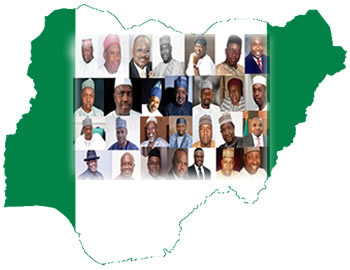Socio-Economic Rights and Accountability Project (SERAP) has requested Mrs Fatou Bensouda, Prosecutor, International Criminal Court to “use your good offices and position to investigate allegations of collective punishment and crimes against humanity against tens of thousands of Nigerian workers as a result of non-payment of their salaries for several months.”
In the petition dated July 7, 2016 and signed by SERAP executive director Adetokunbo Mumuni the organisation said: “We are seriously concerned that non-payment of workers’ salaries by several state governments in Nigeria has made life impossible to live for the workers and families. We also urge you to bring to justice anyone who is responsible for the inhumane acts committed against Nigerian workers and prohibited under the Rome Statute of the International Criminal Court to which Nigeria is a state party.”
The petition read in part: “SERAP contends that severe deprivation and mental or physical health challenges faced by Nigerian workers as a result of the non-payment of their salaries fulfil the requirements of this provision. This means that individual liability may attach to governors who continue to hide under the excuse of ‘limited allocations from Abuja’ to deny these workers the fruit of their labour.
“The state governors ought to know that their actions and/or omissions would likely to cause serious physical or mental suffering or a serious attack upon the human dignity of workers whose salaries are not paid.
“Non-payment of salaries for several months, have reduced Nigerian workers to ‘bare life’, or life not worth living, thus taking away their human dignity. The inhumanity of the non-payment of workers’ salaries is illustrated by the serious threats this poses to the workers’ physical and mental health, and family life as well as their ability to contribute to the development of the country. The non-payment of salaries has created an environment of powerlessness for several workers and perpetuated a system of impunity in many states.
“Article 7 (1) (k) of the Rome Statute of the International Criminal Court criminalises other inhumane acts intentionally causing great suffering, or serious injury to body or to mental or physical health. The treatment of many workers in several states reaches the level of ‘inhumane acts’ covered under this provision.
“Nigerian workers have for many years been victims of particularly heinous violations of international human rights law caused by massive looting of public treasury and mismanagement by high-ranking public officials.”
“SERAP also contends that the gross violations of human rights and deplorable standard of living of many workers and their families in several states of Nigeria are grave and therefore suggest reasonable grounds justifying a preliminary investigation by the ICC Prosecutor.”
“Alongside investigating mass atrocity, the prosecutor should seek to investigate those crimes such as gross, systematic and widespread violations of workers’ right to timely payment of salaries that fall under the Rome Statute provision on “other inhumane acts” but remain unacknowledged as grave violations of human rights.”
WATCH TOP VIDEOS FROM NIGERIAN TRIBUNE TV
- Relationship Hangout: Public vs Private Proposals – Which Truly Wins in Love?
- “No” Is a Complete Sentence: Why You Should Stop Feeling Guilty
- Relationship Hangout: Friendship Talk 2025 – How to Be a Good Friend & Big Questions on Friendship
- Police Overpower Armed Robbers in Ibadan After Fierce Struggle




